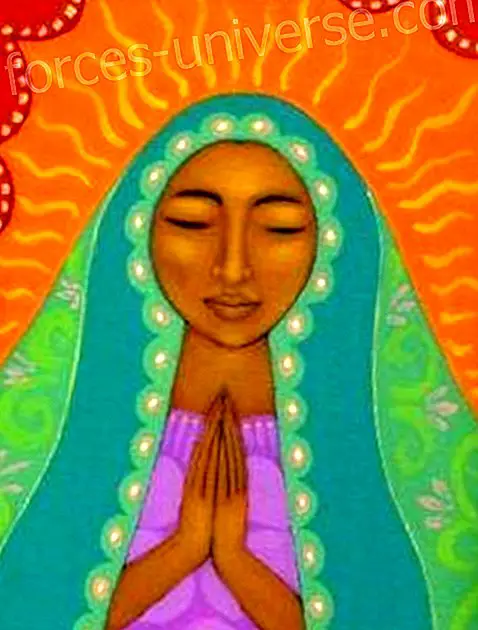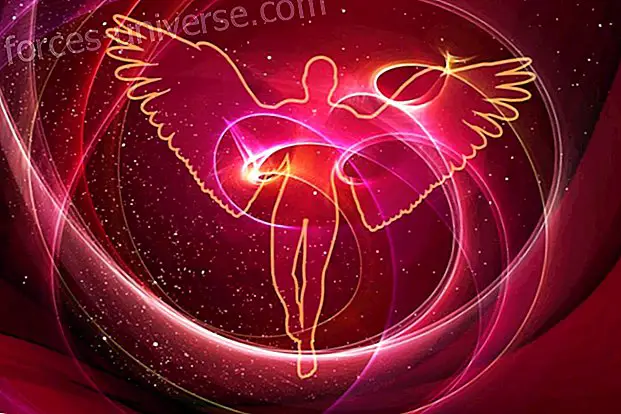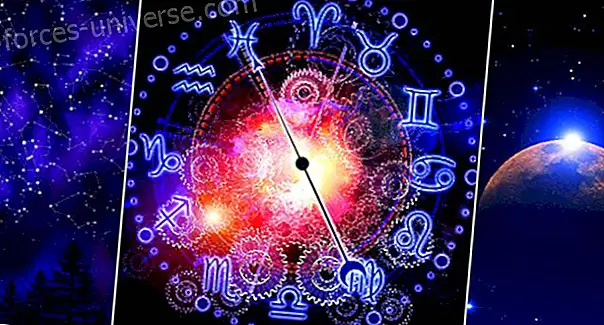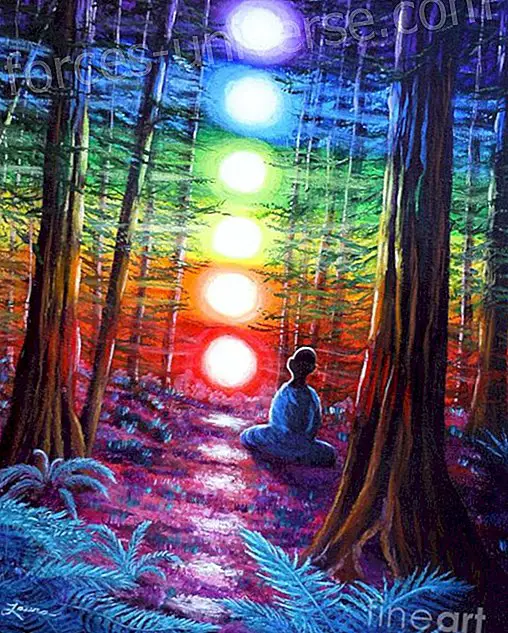It is a calligraphic phrase by Thich Nhat Hanh, in his recent book A song of love for the Earth. What a successful objective of this wise eco-pacific. This reminds me of an experience I had in India ... Writes Joaquín G. Weil.

Like so many Westerners, on one of my first trips to the Asian subcontinent, I was trying to protect myself in the middle of the monsoon from dirt, rain, mud and dust that cover the streets. One day, after a good yoga session, when I left the room I stepped on the floor barefoot and, suddenly, that blessed natural and elementary contact with the earth brought me a reconciliation, a deep relaxation, a reconnection not only with the ground Indian, but with all life and reality. I will not say that it was an enlightenment, but a small epiphany, a revelation of a secret that, in reality, we have always known.
Yes, we are human - from the Latin humus, which means "inhabitants of the earth" - then, in effect, the earth symbolically and, to a certain extent, in reality itself, is the mother.
Once a sore massage therapist came to ask me for advice on his many contractures. It reminded me of that incognito clown who was recommended by his psychoanalyst to go out to the circus to laugh with a famous funny clown, who surely with his jokes would relieve him of anxieties. "It's that clown that you recommend me, it's me." And now the masseuse who worked relieving contractures was himself contracted. I said: "Revolt on the ground, " roll, rock the bare ground. Be like a child again. ”
It is like that. Children until they have been taught with “Boy (or girl), get up from the ground that you are getting lost”, they know that the earth is the mother whose arms they can rest again. A more delightful rest than the softest cushions. This is known by those who practice yoga with great sweat and physical effort, who then, to their surprise, find a joyful relaxation on the ground, barely covered by a thin rubber mat.
The same is what this image of advertising ads for perfumes, insurance or yogurt shows, where beautiful girls or whole families (beautiful all of them) delight on the grass. And then they discover that in the grass there are ants and other bugs (fortunately) and a twig or a beak is poked on their backs. And yet, the ground, in relaxation, is delightful.
A love song to the earth
Thich Nath Hanh's book is meritorious, especially coming from a personality of the spiritual world. Why do I point to this nuance? Because the so-called "spiritual world" has its somewhat gloomy side, of ghosts, "spirits" and appearing. It sounds like a joke, but literally it is so, the so-called spirit has to do with what is beyond life, or more benevolently with what is before, in the so-called limbo, in any case, out of this world . And even more so because of a personality of Buddhism, whose doctrine speaks of samsara, the goodness of the earth is a matter to be questioned. On the other hand there is also such an oriental statement that earthly life is a rare and precious opportunity that we must seize. And abounding even more, the philosophy of that western "Buddhist", ahead of his time, which was Nietzsche, advocated again and again for "fidelity to the Earth", an attitude that seems healthy not so much spiritually as simply mentally.
To conclude, the great metaphor that is Solaris of the Polish writer Stanislav Lem, one of those books that you are sad to finish, and of which two films were made on either side of the iron curtain. Solaris as a metaphor for the Earth as a living being, to be taken care of, and loved, as proposed by the Vietnamese Zen master.
Earth, then in capital letters, as a person or character, as an ascending divinity to the Hindu pantheon Bhumi Dev, or in the Andean popular mythologies, the Pacha Mama. And land in lowercase too, because we are talking about the same thing, with which children play or craftsmen make pottery mud, and that with great generosity provides us with just planting a seed.
http://www.editorialkairos.com/catalogo/un-canto-de-amor-a-la-tierra
Who
Joaquín García Weil has a degree in Philosophy, yoga teacher and director of Yoga Sala Málaga. He has been practicing Yoga for twenty years and has been teaching it for eleven years. He is a student of Swami Rudradev (an outstanding disciple of Iyengar), with whom he has learned in the Yoga Study Center, Rishikesh, India. He has also studied with Dr. Vagish Sastri de Benares, among other teachers.
http://yogasala.blogspot.com
Mother Earth is the most beautiful bodhisattva

 Joaquín García Weil has a degree in Philosophy, yoga teacher and director of Yoga Sala Málaga. He has been practicing Yoga for twenty years and has been teaching it for eleven years. He is a student of Swami Rudradev (an outstanding disciple of Iyengar), with whom he has learned in the Yoga Study Center, Rishikesh, India. He has also studied with Dr. Vagish Sastri de Benares, among other teachers.
Joaquín García Weil has a degree in Philosophy, yoga teacher and director of Yoga Sala Málaga. He has been practicing Yoga for twenty years and has been teaching it for eleven years. He is a student of Swami Rudradev (an outstanding disciple of Iyengar), with whom he has learned in the Yoga Study Center, Rishikesh, India. He has also studied with Dr. Vagish Sastri de Benares, among other teachers.




